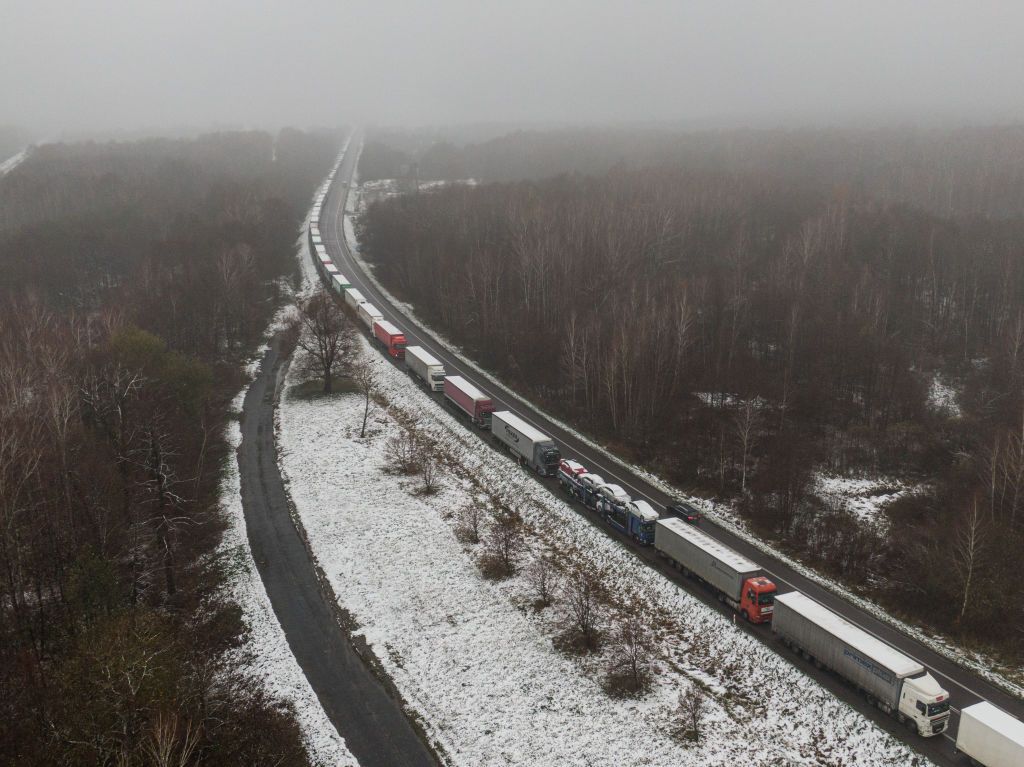Survey: Polish border blockade may ramp up prices on imported goods

The blockade on the Polish border is complicating the import of goods, which may lead to higher prices for some products like imported food, a survey published by Interfax-Ukraine on Nov. 27 shows.
Even though some retail chains say they prioritize Ukrainian-made products, certain foodstuffs like cocoa, coffee, oranges, and salt are primarily imported, according to the Director General of the Ukrainian KOLO retail chain, Marina Serhienko.
"Today, the assessment of our risks is Hr 25-30 million ($690,000-$830,000) per month, in particular, in the categories of confectionery, alcohol, cheeses, citrus fruits," Serhienko told Interfax-Ukraine.
"It is important to understand that this may also affect Ukrainian-made products due to the lack of components for their manufacture or packaging materials," she added.
The press service of the ATB-Market retail chain said that the blockade complicates delivery of not only Polish goods but also goods from the Baltic countries, Germany, the Netherlands, and Belgium that were to be transported via the now-blocked crossings.
According to Serhienko, using open checkpoints does not solve the issue, since the accumulation of vehicles on available crossings also leads to delays and, therefore, higher costs.
"For example, crossing the Ukrainian-Romanian border can increase the delivery time by two to three days, leading to an increase in delivery costs of 600-1,000 euros ($657-$1,095) per trip," she noted.
Natalia Krasnikova, the deputy general director for logistics of the EKO-Market chain, said that these factors are unlikely to have a strong impact on end buyers in the short term.
If the situation drags on, prices of imported goods will begin to rise, she added. Krasnikova also believes such situation could create favorable conditions for domestic companies with production facilities primarily in Ukraine.
Polish truckers started blocking several border crossing points on Nov. 6 in protest of the liberalization of EU transport rules for Ukrainian trucks, causing huge lines on both sides of the border.
Four crossings have been blocked so far, leaving 2,100 trucks stuck at the border as of Nov. 26. Slovak haulers also launched a similar blockade at the Vysne Nemecke-Uzhhorod checkpoint on Nov. 21.
Food is not the only category that may be affected by the blockade. Fuel supplies also became problematic as a result of the protests, according to the Agriculture Ministry.
Ukrainian officials complained that the blockade hinders deliveries of humanitarian supplies and threatens Ukraine's economy amid Russia's full-scale invasion.











